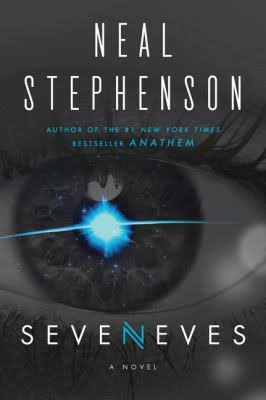M18 – Seveneves – Members
 Pronounced “Seven Eves”.
Pronounced “Seven Eves”.
(Audio: link)
[audio:https://runrunlive.com/?s2member_file_download=M18-Seveneves.mp3]Link M18-Seveneves.mp3
I just finished reading this book by Neal Stephenson. First let me just say that I haven’t read everything of his but I do, in general like his work. His cyberpunk breakout novel Snow Crash is in my top ten favorite books. I think I’ve read Diamond Age too, but can’t recall it as well.
I’d like to congratulate Mr. Stephenson on having the chutzpah to take on a novel of the scope of Seveneves. I can see why it took, ironically, seven years of his life to get it done.
And that’s my first comment. This book is immense. 800 or so pages long. I don’t have anything against big novels per se but this one felt like an investment that I’m not sure I would have started if I knew what I was getting into.
He creates a near future narrative of an apocalyptic end of the Earth, the desperate colonization of orbital space and the resulting universe that creates much farther into the future.
In that sense of scope and universe building I would liken it to the Dune or Foundation series. Ambitious in scope. It is for the most part hard SF with lots of tech and space adventure. However in the last third it started to feel a bit like a Pohl fantasy adventure peopled by dwarves and fairies.
I concur with other reviewers who thought that this would have made 3 goodly sized SF books in a series (think Dune or Foundation) and that it was unnecessarily punishing to the reader to make us pound through the great arc of this universe in one go.
I also concur with them that he sacrificed narrative and character for pages and pages of technical exposition. At times I felt like I was slogging through an endless computer manual. I get it that the fun part of this for him was imagining how the engineering would work but please for the love of god we don’t always need to know how the sausage is made.
I think if it was a series he could have given us more of a story around how they got from the Cleft to the Eye. I mean he spends all those pages making sure we know exactly how the space toasters work then jumps from a barely flickeringly alive human race, hanging on by its fingernails, to five thousand years later and oh by the way it’s all cool, they figured all that shit out.
Some of the tech didn’t make sense to me either. He said they moved away from microchips etc., but in the 3rd section they are obviously using a lot of computing power behind the scenes to coordinate and optimize all that stuff. Momentum and Newtonian physics are all well and good but the real world is chaotic. So someone must have figured out how to make a fab plant to cook up some new wafers.
And plastic. They use a lot of plastic and advanced materials. You know how hard that stuff is to make? So there had to be some space refineries floating around in all the makeshift steampunk stuff.
Overall, I liked the ambition. I liked the characters and the story when they were allowed to wander free of the exposition. I’m glad I read it, even though at times in the middle I was cursing the investment of time. It had some really good hard SF ideas that made me think. And that’s really what I want out of a SF book – I want the ideas to make me think. Those are the ideas that stick with me. Those are the ideas I benefit from and those ideas here I thank Bard Stephenson for.
Chris Russell August 18 2016
